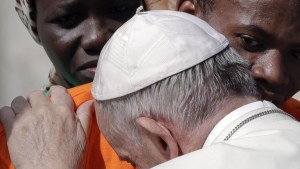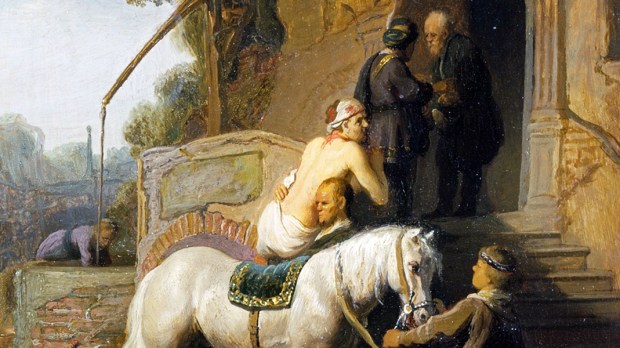“Which of these three, in your opinion, was neighbor to the robbers’ victim?”He answered, “The one who treated him with mercy.”Jesus said to him, “Go and do likewise.” —Luke 10:36-37
A few years ago, I came across a news story about a religious sister serving in a clinic in Syria. True to her calling, she was serving all those who needed care, including sick and wounded Muslim soldiers. When asked why she, a Christian, would be willing to care for Muslims—including those who might have been perpetrating violence against the Christian community—she simply responded by saying, “We don’t do this because of who they are. We do this because of who we are.”
I was reminded of these words when I read a recent article about the transition of Memphis’ Catholic “Jubilee Schools” into public charter schools, as one principal remarked that they taught the largely non-Catholic student body, “We educate them because we are Catholic, not because they are.”
As I think about this Sunday’s Gospel with its Parable of the “Good Samaritan,” I find myself coming back to those two responses: we do what we do because it’s about whowe are.
It’s a tough lesson, certainly. And so, it seems that there is a question at the heart of this Gospel passage: Who are you?
In considering this text, we don’t know what was in the mind and heart of the scholar who approached Jesus that day. Certainly he knew what his religious duties were and he could recite the law. His answer to Jesus is perfect. But the exchange doesn’t end there. The man wants to justify himself and, so, he asks Jesus a pointed question: “Who is my neighbor?”
Rather than simply answer the question, Jesus tells a story designed to help the scholar move beyond all the rules he has in his head, inviting him to listen to his heart. The twist in the parable, however, is that the “hero” of the story wasn’t a faithful Jew like the scholar. In fact, the hero is a Samaritan, a man who has been reviled by faithful Jews. Unlike the “righteous” priest and Levite who leave the robbers’ victim bleeding and broken by the side of the road, the Samaritan not only takes the man to safety, but he provides for his care out of his own resources. He is living out the way of God that is elaborated in Moses’ words from the First Reading: “For this command that I enjoin on you today is not too mysterious or remote for you … it is something very near to you, already in your mouths and in your hearts; you have only to carry it out.” In his heart—just like those who passed by—the Samaritan knew what was being asked of him and he responded.
The Parable of the Good Samaritan challenges our ability to make excuses for why we may refuse to serve or support those whom we might be willing to recognize as a “neighbor,” but who, for whatever reason, we keep at a distance because we only see a “them” — someone different from us, an outsider. This parable is a powerful and vivid reminder that this is never an option for Christians. Ultimately, Christianity—and each individual Christian—should be known by the dynamic love for God and neighbor outlined in this Sunday’s Gospel.

Read more:
Good Samaritan didn’t check on documents, says Pope Francis
As difficult as it may seem, the commandment to love embodied in this parable isn’t impossible or something beyond us. We need only look at the lives of the saints—and of Jesus himself—to see this kind of unbounded love at work.
The invitation for us this Sunday is to reflect on what is holding us back from being the loving, self-giving people that our commitment to Jesus demands that we be. What is preventing us from being the people of justice that the Gospel calls us to be?
In the end, our openness to love redefines who we understand our “neighbor” to be (everyone!) and removes the obstacles to our reaching out to them in mercy and compassion. It is love that allows us to be who we are meant to be.
Who is your neighbor?Is there an individual, group, or class of people that you judge harshly or to whom you have closed your heart? How does the Parable of the Good Samaritan challenge you to look beyond your judgments and prejudices?What would it mean for you to love as God loves: personally and generously?
Words of Wisdom: “If God is compassionate, then certainly those who love God should be compassionate as well. The God who Jesus announced and in whose name he acts is the God of compassion, the God who offers himself as example and model for all human behavior.”—Henri Nouwen

Read more:
Why giving to the poor is NOT actually charity

